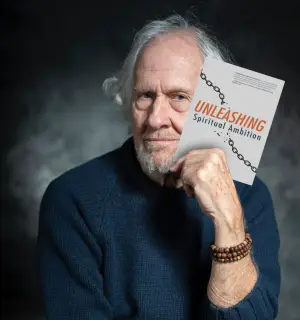Book Review: The Case for Christ: A Journalist’s Personal Investigation of the Evidence for Jesus by Lee Strobel
When I first stumbled upon The Case for Christ, I was intrigued by its dual promise: a gripping investigative narrative coupled with profound spiritual inquiry. Lee Strobel, a former atheist turned committed Christian and seasoned journalist, captures my attention with the promise of a thorough exploration of evidence surrounding one of history’s most significant figures—Jesus Christ. With over five million copies sold and a reputation as a compelling read, I knew I had to dive in.
From the outset, Strobel’s journalistic approach is evident. The book is structured as a series of interviews, presenting a wide array of experts—scholars, historians, and forensic professionals—who each tackle the pivotal questions surrounding Jesus’ life, death, and resurrection. The way Strobel crafts the narrative reads almost like a courtroom trial, wherein he weighs evidence and cross-examines witnesses, making the complex historical inquiries feel like a fast-paced detective story rather than a dry theological treatise.
What truly resonated with me was Strobel’s transparency regarding his initial doubts and skepticism. His candid reflections on his spiritual journey imbue the book with authenticity, making it relatable for anyone grappling with questions about faith. It’s this accessibility that made me appreciate the book more than I anticipated. For instance, when Strobel discusses the reliability of the New Testament, he balances factual data with personal anecdotes. He doesn’t merely present arguments; he invites readers to share in his inquiry, transforming the reading experience into a collaborative search for truth.
Notably, the depth of research is commendable. Each chapter closes with thought-provoking questions that challenge readers to reflect, not just agree passively. One of my favorite segments was where Strobel investigated the resurrection—his methodical approach and the scientific analyses brought forth not only information but genuine amazement and wonder at the claims of the Gospel. I found myself highlighting quotes and passages that encapsulated the book’s essence, such as when he described belief as "the bridge between reason and faith." This metaphor lingered with me, reminding me that faith often requires a leap, even when bolstered by evidence.
Strobel’s engaging writing style—concise yet conversational—makes the book easy to read while maintaining intellectual rigor. It feels less like an argument and more like a friendly debate among thoughtful companions. I believe that regardless of one’s current beliefs, The Case for Christ offers invaluable insights. Skeptics may find the evidence compelling, and believers might discover fresh strengths to deepen their faith.
In conclusion, I wholeheartedly recommend The Case for Christ to anyone curious about Jesus, whether you approach it from a standpoint of skepticism or faith. It’s not simply about certifying belief; it’s about embarking on an enlightening journey that could reshape your understanding of Christ’s place in history. For me, it was not just a book but an exploration that stirred my heart and mind, reinforcing the idea that every question deserves an honest answer. So whether you’re on the brink of belief or merely curious, give this book a read—it might just change your perspective.
[ad_2]






